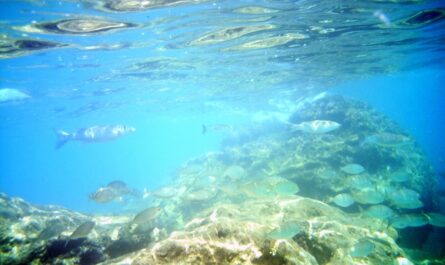The Atlantic Ocean stands as one of the most influential and dynamic bodies of water on Earth. Stretching from the icy realms of the Arctic down to the warm currents of the tropics, the Atlantic has been a cornerstone of oceanographic research for centuries. Its diverse environments—from shallow coastal waters to deep, mysterious trenches—serve as natural laboratories where scientists investigate marine ecosystems, climate systems, and geological processes. In this article, we explore the historical evolution of Atlantic research, highlight pivotal discoveries, and examine the challenges and opportunities that lie ahead for oceanographers studying this vast ocean.
Historical Perspectives and Early Exploration
The exploration of the Atlantic Ocean began long before the advent of modern technology. Early navigators and explorers, driven by trade, conquest, and the spirit of discovery, embarked on voyages that would ultimately chart the coastlines and unravel the secrets of the Atlantic. During the Age of Exploration in the 15th and 16th centuries, European explorers like Christopher Columbus and John Cabot ventured into these waters, mapping new territories and collecting rudimentary data on ocean currents and coastal geography.
In the 18th and 19th centuries, scientific inquiry into the Atlantic expanded significantly. Early oceanographers and naturalists began to systematically document temperature gradients, salinity profiles, and current patterns. Their painstaking work laid the foundation for the field of oceanography, transforming the Atlantic from a mysterious frontier into a subject of scientific study. Early expeditions—often supported by naval and academic institutions—collected water samples, measured depths, and recorded variations in water chemistry. These initial forays not only improved navigational charts but also provided the first clues about the complex interactions that govern ocean behavior.
The Advent of Modern Oceanography
The 20th century brought about a revolution in oceanographic research. The development of advanced technologies such as sonar, deep-sea submersibles, and later, remotely operated vehicles (ROVs) and autonomous underwater vehicles (AUVs), enabled scientists to explore the deep Atlantic like never before. These tools allowed researchers to peer into the abyss and study regions that were once entirely inaccessible.
One of the landmark discoveries of this era was the detection of hydrothermal vents along the Mid-Atlantic Ridge. First identified in the late 1970s, these vents revealed a vibrant ecosystem thriving in complete darkness, sustained not by sunlight but by the chemical energy emanating from Earth’s interior. This breakthrough fundamentally altered our understanding of life on Earth and opened up new interdisciplinary fields that combined biology, chemistry, and geology.
The same period saw significant progress in understanding large-scale ocean circulation. Researchers uncovered the mechanisms of thermohaline circulation—the “global conveyor belt” that moves water masses around the planet. This discovery demonstrated how differences in water density, driven by temperature and salinity, could fuel deep-ocean currents that play a crucial role in regulating global climate. Studies conducted in the North Atlantic, where cold, dense water sinks and drives circulatory patterns, provided essential insights into the distribution of heat and carbon dioxide across the globe.
Key Discoveries Shaping Our Understanding
Research in the Atlantic has yielded a multitude of discoveries that have reshaped our scientific understanding:
- Thermohaline Circulation and Climate Regulation:
The discovery of thermohaline circulation has been one of the most influential in modern oceanography. In the North Atlantic, the formation of deep water through cooling and salinity increases sets off a cascade of currents that distribute warm and cold water across continents. This process, often described as the “global conveyor belt,” is fundamental to moderating Earth’s climate. By transporting heat and sequestering carbon dioxide, the Atlantic plays a pivotal role in climate regulation. Detailed studies of these processes have improved climate models, aiding in the prediction of future climate shifts and extreme weather events. - Hydrothermal Vents and Extreme Life Forms:
The discovery of hydrothermal vents on the Mid-Atlantic Ridge not only transformed our understanding of deep-sea ecosystems but also expanded the known limits of life. These vents support communities of organisms that thrive in high-pressure, high-temperature environments devoid of sunlight. The unique ecosystems found around these vents challenge traditional biological paradigms and have led to significant advances in fields such as biochemistry and evolutionary biology. Researchers continue to study these vents to understand how life can exist in extreme conditions, which may even inform the search for life on other planets. - Biodiversity and Ecosystem Dynamics:
The Atlantic Ocean hosts a broad spectrum of marine habitats, from coral reefs and seagrass beds in its tropical regions to the dark, nutrient-rich waters of its deep basins. Studies have revealed intricate food webs and symbiotic relationships among marine organisms. For instance, research on the dynamics of pelagic ecosystems in the North Atlantic has shed light on predator-prey relationships and the impacts of seasonal productivity on fish populations. These findings are essential for managing fisheries sustainably and protecting marine biodiversity in the face of human exploitation. - Geological Processes and Seafloor Spreading:
Geological research in the Atlantic has provided invaluable insights into Earth’s dynamic processes. The study of mid-ocean ridges, fracture zones, and abyssal plains has elucidated the mechanisms of seafloor spreading and plate tectonics. These processes not only shape the physical structure of the ocean floor but also influence ocean chemistry and the distribution of mineral resources. Understanding these geological phenomena is critical for assessing natural hazards such as earthquakes and volcanic eruptions, which can have significant impacts on coastal communities. - Climate Change Indicators:
Long-term monitoring of the Atlantic Ocean has established it as a crucial indicator of climate change. Measurements of temperature, salinity, and sea level provide evidence of ongoing shifts in ocean properties that are linked to global warming. These changes have far-reaching implications, from altering ocean circulation patterns to affecting marine ecosystems and weather systems on land. Atlantic research has been instrumental in documenting the pace of these changes and forecasting future impacts, thereby informing policy decisions related to climate mitigation and adaptation.
Challenges in Atlantic Oceanographic Research
Despite these monumental discoveries, researchers continue to face significant challenges in studying the Atlantic Ocean:
- Technological and Logistical Limitations:
The vastness and depth of the Atlantic present considerable obstacles to continuous observation. Even with modern technology, there remain gaps in our ability to gather high-resolution, real-time data over the entire ocean. The deep ocean, in particular, remains a frontier with many unknowns due to extreme conditions such as high pressure, low temperatures, and complete darkness. Overcoming these technical hurdles requires ongoing innovation in sensor design, data transmission, and autonomous exploration systems. - Climate Variability and Environmental Change:
Rapid shifts in temperature, salinity, and sea level—driven by climate change—add layers of complexity to oceanographic studies. These environmental changes can alter current patterns, affect marine ecosystems, and even lead to abrupt changes in the global climate system. Researchers must continually refine their models and methodologies to account for these dynamic and often unpredictable factors. In addition, understanding how climate change interacts with natural variability remains one of the most pressing challenges in the field. - Interdisciplinary Integration:
The complexity of ocean systems means that understanding the Atlantic fully requires collaboration across multiple scientific disciplines. Integrating physical oceanography with marine biology, geology, chemistry, and atmospheric science is essential for developing comprehensive models of ocean behavior. However, interdisciplinary research introduces challenges related to data standardization, differing methodologies, and the need for effective communication among diverse research teams. Bridging these gaps is critical for advancing our overall understanding of the Atlantic. - Human Impacts and Conservation:
Anthropogenic pressures—such as overfishing, pollution, and coastal development—are altering the Atlantic’s ecosystems at an unprecedented rate. These human-induced changes not only threaten marine biodiversity but also interfere with natural processes that scientists are striving to understand. For example, overfishing can disrupt food webs, while pollution from plastics and chemicals can alter water quality and harm marine life. Balancing economic interests with the need to protect the ocean is a significant challenge that requires both innovative research and effective policy interventions.
Collaborative Efforts and Future Directions
To overcome these challenges, international collaboration has become a cornerstone of modern Atlantic research. Organizations such as the Global Ocean Observing System (GOOS) bring together governmental agencies, academic institutions, and private organizations from around the world to share data, standardize methodologies, and coordinate large-scale research projects. These collaborative efforts are critical for filling knowledge gaps and ensuring that research findings are comprehensive and applicable on a global scale.
Future research in the Atlantic is poised to benefit from emerging technologies and innovative approaches. Advances in machine learning and data analytics are helping scientists process vast amounts of observational data more efficiently, leading to more accurate models of ocean behavior. Additionally, the development of next-generation sensors and autonomous vehicles promises to enhance our ability to explore the deep ocean and monitor its dynamic processes in real time.
Public engagement and citizen science are also expected to play an increasingly important role. Initiatives that involve local communities in data collection—such as coastal monitoring programs and mobile applications for reporting marine observations—can expand the scope of research while fostering a greater public appreciation for the ocean’s significance. By engaging non-scientists in the process, researchers can tap into a broader network of observations that enhances the overall quality and quantity of data available.
Looking ahead, the future of Atlantic oceanography will depend on our ability to integrate new technologies with traditional research methods. This integrated approach will not only improve our understanding of the Atlantic but also enhance our capacity to address broader global challenges such as climate change, food security, and disaster preparedness. As the scientific community continues to push the boundaries of what is possible, the Atlantic Ocean remains a wellspring of discovery that holds the key to many of the planet’s most pressing environmental issues.
Conclusion
The Atlantic Ocean continues to serve as a vital frontier for global oceanographic research. Its diverse environments and dynamic processes have yielded discoveries that have reshaped our understanding of climate regulation, biodiversity, geological processes, and the impacts of human activity. While significant challenges remain—from technological limitations and climate variability to the complex integration of interdisciplinary data—the progress made thus far offers a strong foundation for future research.
By embracing innovative technologies, fostering international collaboration, and engaging the public in scientific inquiry, researchers are well positioned to unlock even more of the Atlantic’s secrets. The insights gained from studying this vast ocean not only advance our scientific knowledge but also provide practical solutions for addressing global challenges such as climate change and environmental conservation.
In a rapidly changing world, the Atlantic Ocean stands as a reminder of nature’s complexity and resilience. Continued investment in Atlantic research will be crucial for safeguarding our planet’s future and ensuring that we remain connected to one of Earth’s most vital and dynamic systems. Through ongoing exploration and collaborative efforts, the Atlantic will continue to inform our understanding of the natural world and inspire generations to come.



